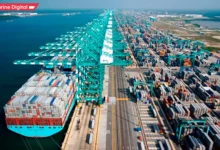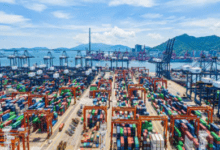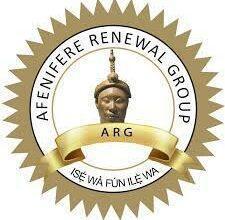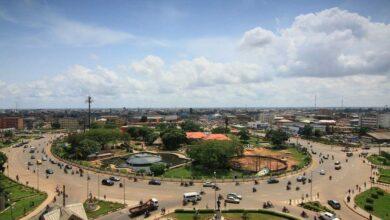
10 Factors Affecting National Development In Nigeria
Factors Affecting National Development In Nigeria – Nigeria, a country located in West Africa, has a population of over 200 million and is the largest economy in Africa. The country has a diverse and rich cultural heritage and is home to over 500 ethnic groups. Nigeria’s economy has been growing rapidly in recent years, driven by its oil and gas sector, telecommunications industry, and banking sector.InformationGuideNigeria
However, the country still faces significant challenges such as poverty, unemployment, and poor infrastructure. Despite these challenges, Nigeria has made progress in areas such as education, healthcare, and technology. The government has also been working to improve the business environment and attract foreign investment.
👉 Relocate to Canada Today!
Live, Study and Work in Canada. No Payment is Required! Hurry Now click here to Apply >> Immigrate to CanadaRead Also: 10 Factors Affecting National Security in Nigeria
What is National Development?
National development refers to the process of improving the economic, political, and social well-being of a country and its people. This can include efforts to increase economic growth and prosperity, reduce poverty and inequality, improve education and healthcare, and strengthen political institutions and governance. National development can also encompass efforts to promote cultural preservation and identity, protect the environment, and promote international cooperation and security.200 Romantic Love Message
Read Also: 10 Factors Affecting Nationalism and Patriotism in Nigeria
Types of National Development in Nigeria
There are several types of national development in Nigeria, including:
- Economic Development: This type of development focuses on improving the overall economic growth and prosperity of the country through initiatives such as job creation, infrastructure development, and poverty reduction.
- Social Development: This type of development focuses on improving the overall well-being of citizens by addressing issues such as education, healthcare, and poverty reduction.
- Political Development: This type of development focuses on strengthening and stabilizing the country’s political system, including the development of democratic institutions and the protection of human rights.
- Environmental Development: This type of development focuses on preserving and protecting the natural environment, including efforts to combat climate change, deforestation, and pollution.
- Infrastructure Development: This type of development focuses on the building and maintenance of infrastructure such as roads, bridges, airports, and public transportation, which is important for economic growth and social development.15 Best Industries in Nigeria
- Human Capital Development: This type of development focuses on the improvement of human resources through investment in education, healthcare, and vocational training.
Read Also: Factors Affecting Distribution Of Crops In Nigeria
Advantages of National Development in Nigeria
There are several advantages of national development in Nigeria, including:
- Increased International Trade and Investment: National development can lead to increased international trade and investment, which can help the country to become more competitive in the global economy.
- Environmental Sustainability: National development can include policies and projects that promote environmental sustainability, such as renewable energy, conservation, and pollution control, which can help to preserve natural resources for future generations.10 Economic Challenges In Nigeria
- Greater Social Stability: National development can lead to the reduction of poverty, unemployment, and inequality, which can help to promote greater social stability and reduce the risk of conflict.
- Job Creation: As the economy grows, more jobs are created, reducing unemployment and poverty.
- Increased Competitiveness: A developed country can compete more effectively in the global economy, attracting foreign investment and boosting exports.10 Factors Affecting National Development In Nigeria
- Enhanced Security and Stability: A developed country is generally more stable and secure, with a stronger government and institutions that can better address social and economic issues.
- Improved Public Services: The development of a country leads to better provision of public services such as healthcare, education, and social welfare.
Read Also: Factors Affecting Distribution Of Crops In Nigeria
National Development and the Nigerian Society
Nigeria has a complex history of colonization, independence, and political turmoil that has shaped its national development. The country was colonized by the British in the late 19th century and became independent in 1960. However, the country faced challenges in the form of military coups and political instability in the decades following independence. Despite this, Nigeria has made significant economic and social progress in recent years, becoming the largest economy in Africa and making strides in areas such as education and healthcare. However, the country still faces significant challenges, including poverty, corruption, and inequality.
👉 Relocate to Canada Today!
Live, Study and Work in Canada. No Payment is Required! Hurry Now click here to Apply >> Immigrate to CanadaRead Also: 10 Factors Affecting Immunization In Nigeria
Factors affecting National Development in Nigeria
Several factors affect national development in Nigeria, some of the major ones include:
- Economic Factors: These include the country’s gross domestic product (GDP), unemployment rate, inflation rate, and balance of trade. A strong economy is essential for a country’s development, as it allows for investment in infrastructure, education, and other areas.
- Political Stability: A stable political environment is necessary for a country to attract foreign investment and promote economic growth. Political instability can lead to a lack of investor confidence and a decrease in economic activity.
- Education: An educated population is a key factor in a country’s development. Education helps to promote economic growth, innovation, and social development.NYSC Portal
- Natural Resources: A country’s natural resources can play a significant role in its development. Countries with abundant natural resources, such as oil or mineral deposits, may have an easier time achieving economic growth than those without.
- Infrastructure: Adequate infrastructure, including transportation and communication networks, is necessary for a country’s economic growth and development.
- Demographic Factors: A country’s population size, age structure, and growth rate can also affect its development. A rapidly growing population can put a strain on a country’s resources and infrastructure, while an aging population may hurt the economy.
- Ethnic and Religious Divisions: Nigeria is a diverse country with a wide range of ethnic and religious groups. These divisions can lead to conflicts and tensions, which can hinder national development.
- Insufficient Investment in Education: Nigeria has one of the lowest literacy rates in the world, and insufficient investment in education has been a major contributing factor.
- Economic Mismanagement: Nigeria has struggled with economic mismanagement in the past, leading to inflation, high unemployment, and a lack of basic infrastructure.JAMB Portal
- International Relations: A country’s relationships with other nations can also play a role in its development, both positively and negatively. Strong trade partnerships and diplomatic relations can promote economic growth, while conflicts and sanctions can hinder it.
Read Also: 11 Factors Affecting Local Government Finance in Nigeria
Conclusion
Nigeria’s national development is impacted by a range of factors including economic challenges such as corruption, lack of diversification, and inadequate infrastructure. Political instability and poor governance are major issues that also negatively affect the country’s development. Furthermore, factors such as poor education and limited access to healthcare also impede the nation’s progress. Addressing these challenges is crucial for Nigeria to achieve sustainable and inclusive growth.
Check JAMB Result
Check and Confirm: How much is Dollar to Naira







